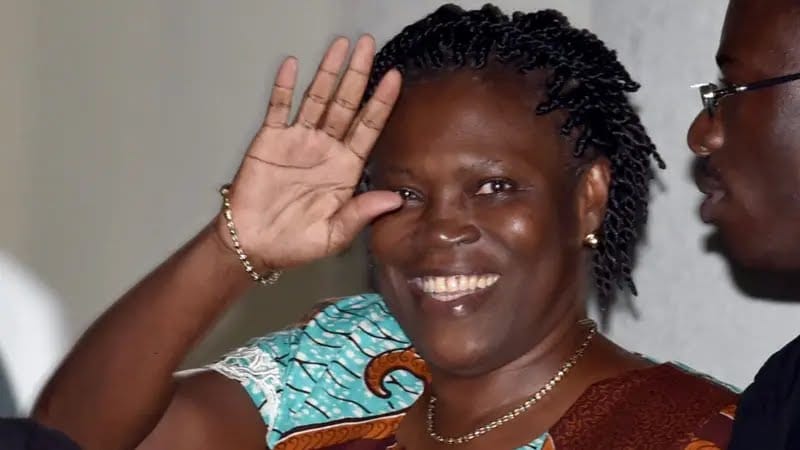Ivory Coast’s Constitutional Council has surprised many by approving the candidacy of former First Lady Simone Gbagbo, 76, for the upcoming 25 October presidential election.
The decision puts her in direct competition with President Alassane Ouattara, 83, who has ruled since 2011 and is seeking a fourth term.
Disqualifications Spark Tension
Several high-profile figures have been barred from contesting, including former President Laurent Gbagbo, Simone’s ex-husband, ex-Prime Minister Pascal Affi N’Guessan, and ex-Credit Suisse CEO Tidjane Thiam.
Thiam condemned his exclusion as “an act of democratic vandalism”, accusing Ouattara’s government of orchestrating a one-sided contest.
Ouattara originally faced a two-term limit but a 2016 constitutional change allowed him to run again in 2020. That election was boycotted by the opposition and marred by violence, leaving at least 85 people dead.
Laurent Gbagbo, once acquitted of crimes against humanity at the ICC, remains barred due to a 2018 conviction linked to the 2010–11 post-election crisis in which over 3,000 people were killed. He received a pardon in 2020, but his political rights were not restored.
A Symbolic Candidacy
For Simone Gbagbo, her inclusion marks a political comeback. Once nicknamed “The Iron Lady”, she played a controversial role in past unrest, which led to a 20-year prison sentence in 2015. She was granted amnesty three years later.
Unlike her ex-husband, her conviction did not remove her from the voter roll, clearing her path to stand. She has since rebuilt her political base and now campaigns under the slogan of building “a new nation within a sovereign, dignified, and prosperous Africa.”
She becomes the most prominent female contender in Ivory Coast’s history, in a country where women make up only about 30% of parliament. Alongside her, former minister Henriette Lagou Adjoua has also been cleared to run.
Analyst Severin Yao Kouamé described her candidacy as “symbolic and powerful,” saying it could reshape perceptions of women in politics.
What Next?
With 8.7 million registered voters, the election is already raising concerns about legitimacy and stability. The exclusion of key figures risks eroding trust, while Simone’s candidacy is likely to galvanize both supporters and critics.
The official campaign begins on 10 October. Whether Simone Gbagbo can turn symbolism into votes, and possibly the presidency, is now the question hanging over Ivorian politics.



